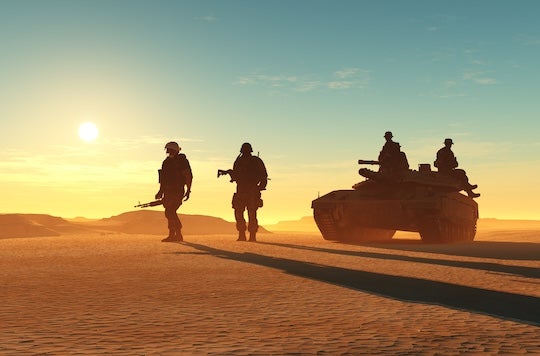As tensions escalate in the Middle East and concerns grow over potential U.S. involvement, Rice University offers a diverse group of subject matter experts available to provide timely analysis and historical context.

Rice thought leaders are available to speak on the geopolitical implications of the Israel-Iran conflict, U.S. foreign policy strategy, oil market volatility and the ideological and historical forces shaping unrest.
U.S. foreign policy and geopolitical strategy
Director of Rice's Baker Institute for Public Policy
Satterfield is a veteran diplomat, including serving as the former U.S. special envoy for Middle East humanitarian issues and former ambassador to Lebanon and Turkey. With decades of experience in the region, he can provide insight into U.S. diplomatic responses, humanitarian strategy and international coordination during the conflict.
Energy security and market implications
James A. Baker III and Susan G. Baker Fellow in Energy and Resource Economics and senior director of the Center for Energy Studies at the Baker Institute
An internationally recognized energy economist, Medlock can speak to the oil market impacts of the Israel-Iran conflict, global energy security and how energy disruptions influence U.S. policy and economic stability.
Nonresident fellow at the Center for Energy Studies at the Baker Institute
York is a seasoned energy executive and economist with expertise in global oil and gas markets, energy policy and corporate strategy. He can provide insight into how geopolitical instability affects global oil flows, investment behavior and U.S. energy interests.
Nonresident fellow at the Center for Energy Studies at the Baker Institute
Rajendran specializes in global energy systems, particularly oil and gas markets, refining and strategy. He can speak to supply chain risk, market volatility and the broader implications of geopolitical conflict for U.S. and international energy markets.
Iranian foreign policy and refugee displacement
Fellow for the Middle East and director of the Women's Rights, Human Rights and Refugees Program at the Baker Institute
Norman is an expert on U.S. foreign policy, authoritarianism and migration in the Middle East and North Africa. She can speak to the regional humanitarian fallout of conflict, including refugee movements and displacement as well as the intersection of U.S. policy with human rights in conflict zones.
Gulf politics and intraregional conflict
Fellow for the Middle East and co-director of the Middle East Energy Roundtable at the Baker Institute
Ulrichsen focuses on Gulf politics and intraregional conflict. He can contextualize Iran's role in the region, shifting alliances and how state and nonstate actors interact in the current geopolitical landscape.
Historical context of the Middle East
Barbara Kirkland Chiles Professor of History
Citino specializes in the history of U.S.-Middle East relations, including Cold War diplomacy, economic development and the shaping of U.S. influence in the region. He can provide vital historical context on America's evolving role in the Middle East and how past alliances and interventions inform today's tensions.
Interfaith dynamics and public perception
Senior lecturer of sociology
Considine focuses on the relationship between Christians and Muslims as well as interfaith dialogue. He can address public sentiment and media framing and discuss how religious and cultural perceptions shape both domestic and international responses to events in the Middle East. Additionally, he can provide insight into how the Muslim world reacts to Western policies and conflicts, and he can contextualize how these tensions impact long-standing relationships between the Western and Islamic societies.






